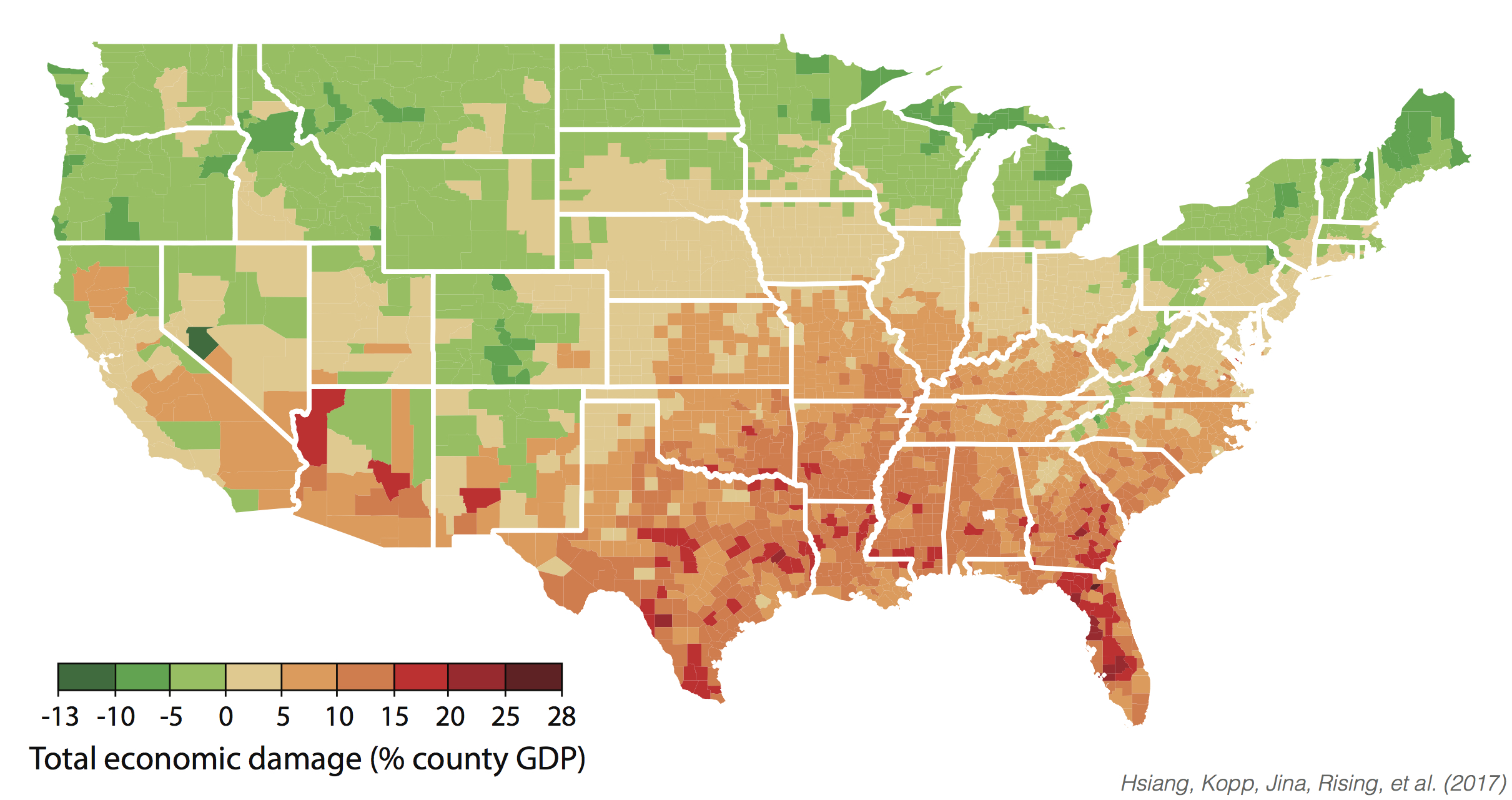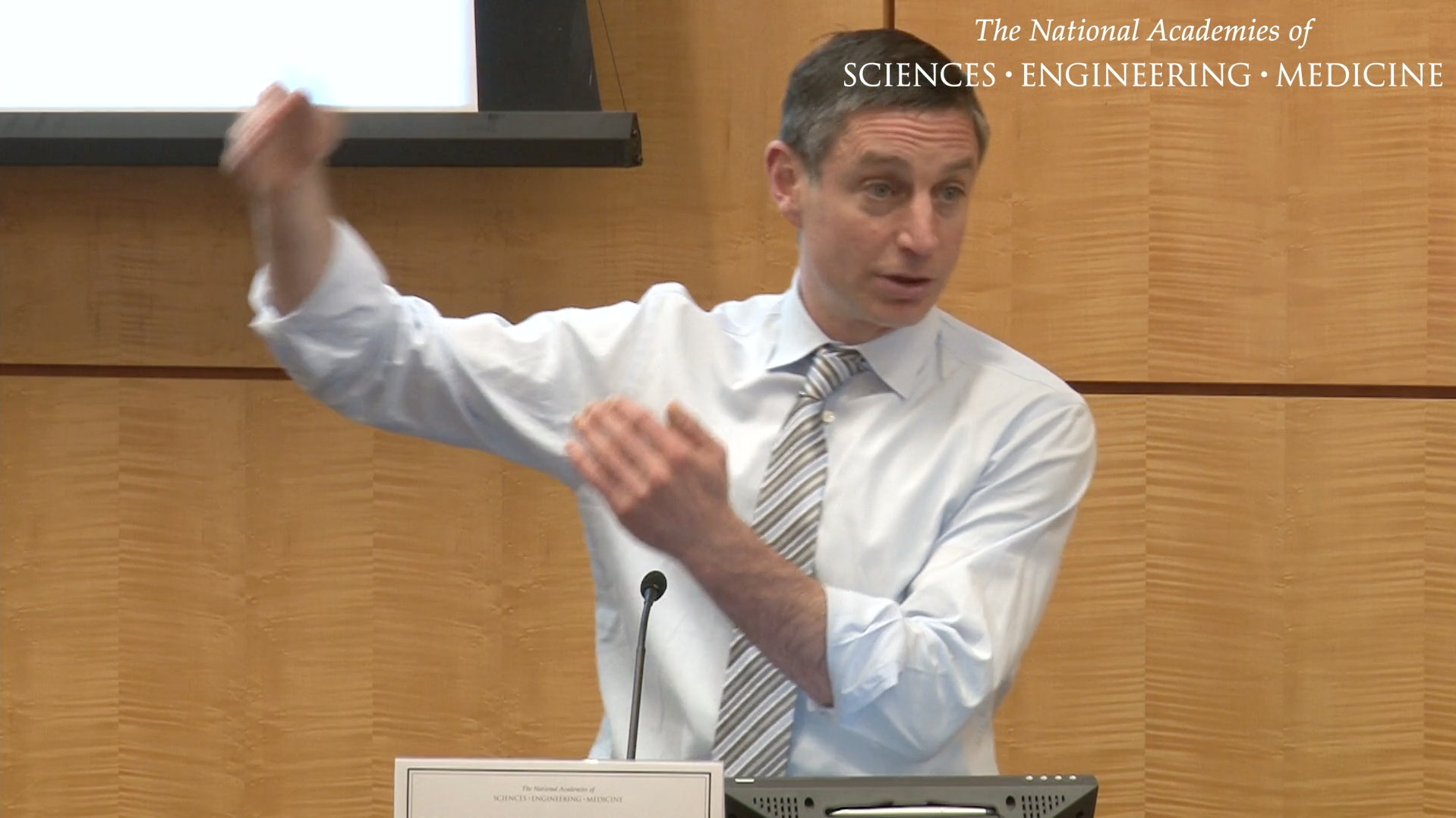The Climate Impact Lab
Publications
The Climate Impact Lab is a collaboration of more than 20 climate scientists, economists, computational experts, researchers, analysts, and students from several institutions, including the Global Policy Lab at University of California at Berkeley, the Energy Policy Institute at the University of Chicago (EPIC), Rhodium Group and Rutgers University.
To project the future costs of climate change, the Climate Impact Lab looks first to historical, real-world experience. The Lab’s researchers combine historical socioeconomic and climate data, allowing the team to discover how a changing climate has impacted humanity—from the ways in which extended droughts have affected agricultural productivity in California to the ways in which heat waves have impacted mortality in India and labor productivity in China. Understanding these relationships allows the Lab to produce evidence-based insights about the real-world impacts of future climate change using projections of temperature, precipitation, humidity and sea-level changes around the world at a subnational scale—from U.S. counties to Chinese provinces.
Combining local climate projections with historical observations yields a highly localized picture of future climate impacts. Cutting-edge research has identified ways in which changes to climatic conditions–such as abnormally warm summers– reduce economic activity, damage food production systems, increase social conflict, and generate migrants. The Lab employs detailed, risk-based, probabilistic, local climate projections to analyze how these impacts may evolve in the years ahead as a result of a changing climate. The analysis seeks to capture the economic risks of low-probability, high-impact climate events as well as those futures most likely to occur. These impacts will also be monetized and aggregated to produce the world’s first empirically-derived estimate of the social cost of carbon—the cost to society done by each ton of carbon dioxide we emit—which will be designed to be fed directly into energy and climate policies around the world.
Link to resource page for Hsiang, Kopp, Jina, Rising et al (Science, 2017)









